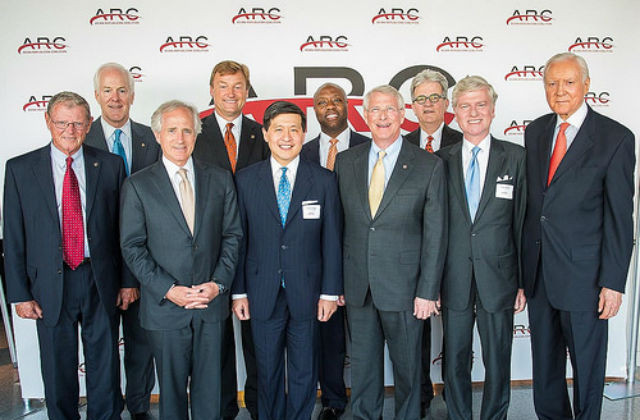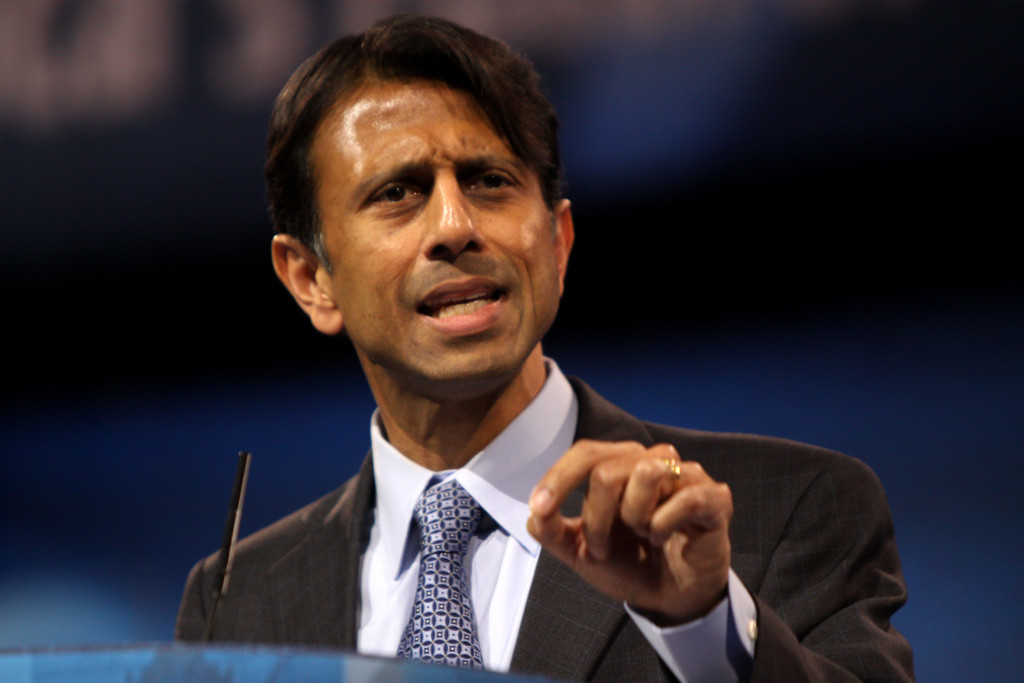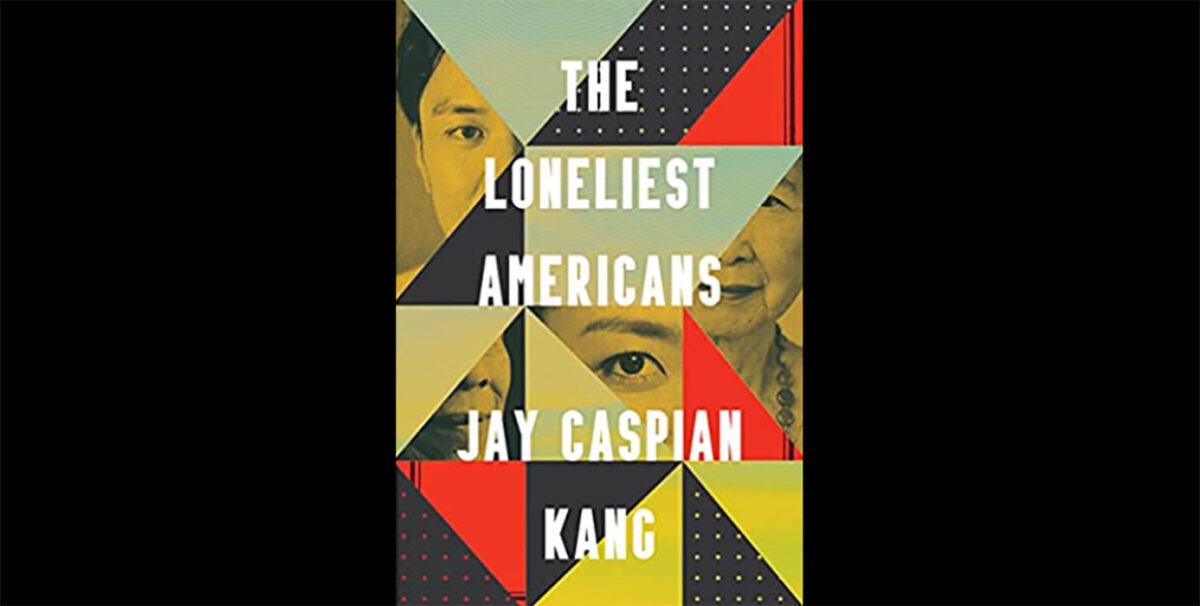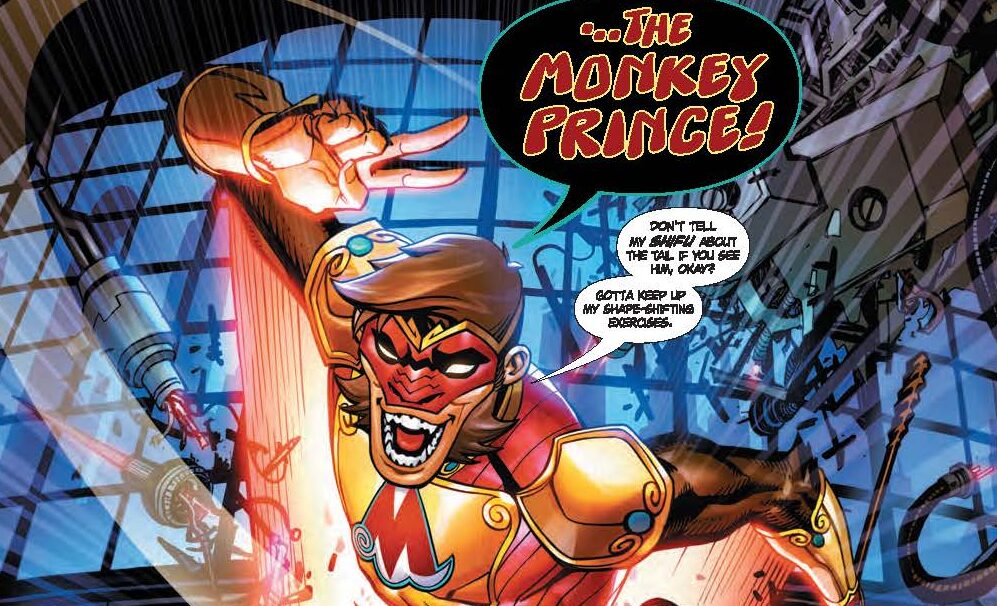
It should come as no surprise that the progressive expansion of America’s non-White populations has left the Grand Old Party in a turmoil. In both 2008 and 2012, Republicans lost the Black, Latino, and Asian votes by wide margins, and most demographic projections predict that in the aggregate, non-White people will outnumber Whites in America by the year 2042 or sooner. Thus, the GOP is in a scramble to develop a loyal non-White voting block in the next decade in order to retain their political power over Democrats.
For many conservatives, the voting block most vulnerable to partisan Republican appeals is the Asian American community. Rooting their hopes largely on model minority stereotypes of Asian Americans, conservatives like Bill O’Reilly view Asian Americans as “not liberal… by nature” because we are “industrious and hard-working”.
To be fair, AAPI are less likely to identify as either Democrat or Republican, with a large segment of our voters preferring to register with an “independent” party affiliation. And certainly, with some Asian American ethnic groups well-represented as small business owners and in the upper echelons of the private sector, the GOP’s conventional pro-business platform should be appealing. Indeed, in the early 1990’s, Asian Americans were evenly split between those who voted George H.W. Bush and his Democratic opponent. Yet, 25 years later, between two-thirds and three-quarters of Asian voters voted with the Democratic party in the last two general elections.

In the last few years, the GOP has launched a series of concerted outreach efforts aimed specifically at attracting unaffiliated Asian American voters to the Right. Yet, Democrats need not yet despair: these transparent efforts have mostly revealed how deeply out-of-touch the Republican party is with regard to the Asian American community.
Last year, the Asian Republican Coalition was launched as an ostensibly independent organization. Its sole mission is to focus on winning over the Asian American vote. From the outset, the ARC reinforces Perpetual Foreigner stereotypes by failing to distinguish between Asian and Asian American interests — even the name of the coalition alone emphasizes “Asian” over “Asian American”. At the press conference held to announce the ARC’s formation, most of the coalition’s membership appeared to be White and when the ARC announced its slate of Republican endorsements, only one — Rhode Island’s Allan Fung — was Asian American. The group’s chairman and the lone Asian face in the group photograph above, Hong Kong-based investment banker John Ying. Meanwhile, the group’s vice chairman is Thomas Britt, the former Asia (as in Asia Asia) Finance Chairman of the RNC. He defended the group’s membership by explaining the ARC’s exceptionally broad definition of who constitutes an Asian American. Speaking to Vice last year:
“We have a very broad definition of what constitutes the Asian American community,” says Britt, who is white. “The Asian Republican Coalition is open to all Americans, including Asian Americans and those of us like me who are not ethnically Asian but have spent twenty years living in Hong Kong.”
The issue goes deeper than the clumsiness of the ARC. The Republican Party has thus far failed to address one potentially fatal contradiction: the GOP wants to court a community defined entirely as a shared racial identity, yet they are a party that openly rejects the very notion of identity politics. They want to win the Asian (American) vote while they simultaneously dismiss the idea that Asian Americans and Pacific Islanders are, should be, and perceive ourselves as a culturally, racially and politically distinct segment of the voting public united for a common AAPI cause.
For much of its recent history, the Grand Old Party has rooted itself in xenophobic racism. It may be too late to turn back now, even though the Republican Party has realized that disrespecting and dehumanizing people of colour is no longer a political investment that can return any meaningful dividends. And so, the GOP finds itself a party that must speak the language of identity politics while it embraces a philosophy that rejects it.
The Party’s dissonant ignorance of that which brings together minority communities is evident in the way that Republican candidates clumsily stumble their way through questions of racial identity, including with regard to AAPI voters: they literally have no idea who AAPI are, let alone how to talk to us in ways that aren’t dismissive and offensive. Recently, Rick Santorum (who announced his presidential candidacy yesterday) described Asian Americans as “yellow” at a campaign stop in northern Iowa, before exasperatedly correcting himself. “I’m talking about black, brown, yellow — whatever, or whatever it is, Asian?” said Santorum while a campaign aide frantically downplayed the gaffe to reporters. Meanwhile, Louisiana Governor Bobby Jindal declared himself “tired of the hyphenated Americans” before going on to call for an end to “African-Americans”, “Indian-Americans” and “Asian-Americans”.
Republicans typically ground their discussion of race in a post-racial colour-blind dream, but as many people of colour — including Asian Americans — understand, this sounds less like sincerity and more like stump-speeching. Santorum might begin a sentence saying that skin colour shouldn’t matter, but when he concludes that same sentence by referring to Asian Americans as “yellow”, we know that it still does. Jindal might proudly identify as just “American”, but here Jindal draws a sharp line between himself and the rest of the Asian American community. The vast majority of Asian Americans in 2012 identify by their ethnicity (e.g. “Filipino” or “Filipino American”), indicating that we place significant emphasis on our distinct cultural and ethnic heritage. While only 30% of us identify with a more pan-ethnic term “Asian” or “Asian American”, a mere 3% of us would reject any ethnic or racial identifier and use just the term “American”.

The Republicans’ failure to grasp basic identity politics also leads to other embarrassing gaffes that compromise their efforts to conduct outreach to Asian American voters. Earlier this week, underdog candidate Carly Fiorina launched into an anti-Chinese tirade that could only be interpreted as abhorrently racist.
“I have been doing business in China for decades, and I will tell you that yeah, the Chinese can take a test, but what they can’t do is innovate,” she said. “They are not terribly imaginative. They’re not entrepreneurial, they don’t innovate, that is why they are stealing our intellectual property.”
This kind of explicitly racist stereotyping can only reinforce the GOP’s existing public image as the party of racial intolerance. Consequently, no matter how much minorities might actually value lower taxes and smaller government, we can never vote with a party that so deeply misunderstands who we are as people that this kind of disrespectful speech is commonplace.
Until the GOP figures out a way to excise this kind of rampant racism from their rank-and-file members, all efforts to court the Asian vote are (and should be) doomed to failure.
The Republicans’ more tangible recent efforts to organize Asian voters have been impressive, if also misguided. The Republican anti-affirmative action lobby has done an impressive job whipping up hysterical fear in California and empowering new efforts out of our community to end race-conscious college admissions nationwide. These initiatives serve in part to build the idea that the Republican party is more sensitive to the concerns of Asian American voters. Of course, Republican strategists have failed to consider that the vast majority of Asian Americans oppose the vocal anti-affirmative action activists in our midst; more than two-thirds of us support affirmative action and don’t think it hurts our chances in college admissions.
But, before Democrats get too comfortable, we must also remember that Republicans do not have a monopoly on racism, anti-Asian stereotyping, and sinophobia; Democrats are fully capable of being racist, too. Sure, Democrats are more facile with the language of identity politics; our Party, for example, comfortingly acknowledges the ethnic and racial diversity of the AAPI community in a way that Republicans do not. As a party, Democrats support a platform of inclusiveness that not only tolerates AAPI, but advances social programs that benefit many within our community.
Yet, last year, a local Kentucky Democratic operative, for example, tweeted a storm of blatantly racist and misogynist tweets against Former Secretay of Labor Elaine Chao. So long as such incidents are generally overlooked by the Democratic Party establishment, the Left’s appeal to Asian Americans should never be considered secure.
More substantively, the Left can ill-afford to continue specifically overlooking AAPI voters, and the big-ticket items that propel us to the ballot box. Albeit more sophisticated than Republican efforts, the Democratic Party’s outreach to the AAPI community remains nonetheless inadequate. Where are the Democratic Party townhalls for Asian American voters to address our key issues? Where are the in-language resource sheets and voter guides? Where are the commitments to help elect staunchly Democratic Asian American representatives? Where are leftists volunteering to help out the 135+ AAPI organizations who took a courageous stand in support of affirmative action this past month?
Sure, the White House just held a major and historic summit on the AAPI community earlier this month, but one day of panel discussions and workshops does not make up for decades of political ambivalence.
Republicans are face-palming-ly bad at speaking about or to AAPI voters. But, so long as the Democrats are allowing the GOP to speak to the AAPI community in a vacuum devoid of similar courtship from the Left, Republicans will make ill-deserved inroads.
Meanwhile, Democrats have a chance to show Republicans how its done: with respect and tolerance. So come on, Democrats, where you at?


